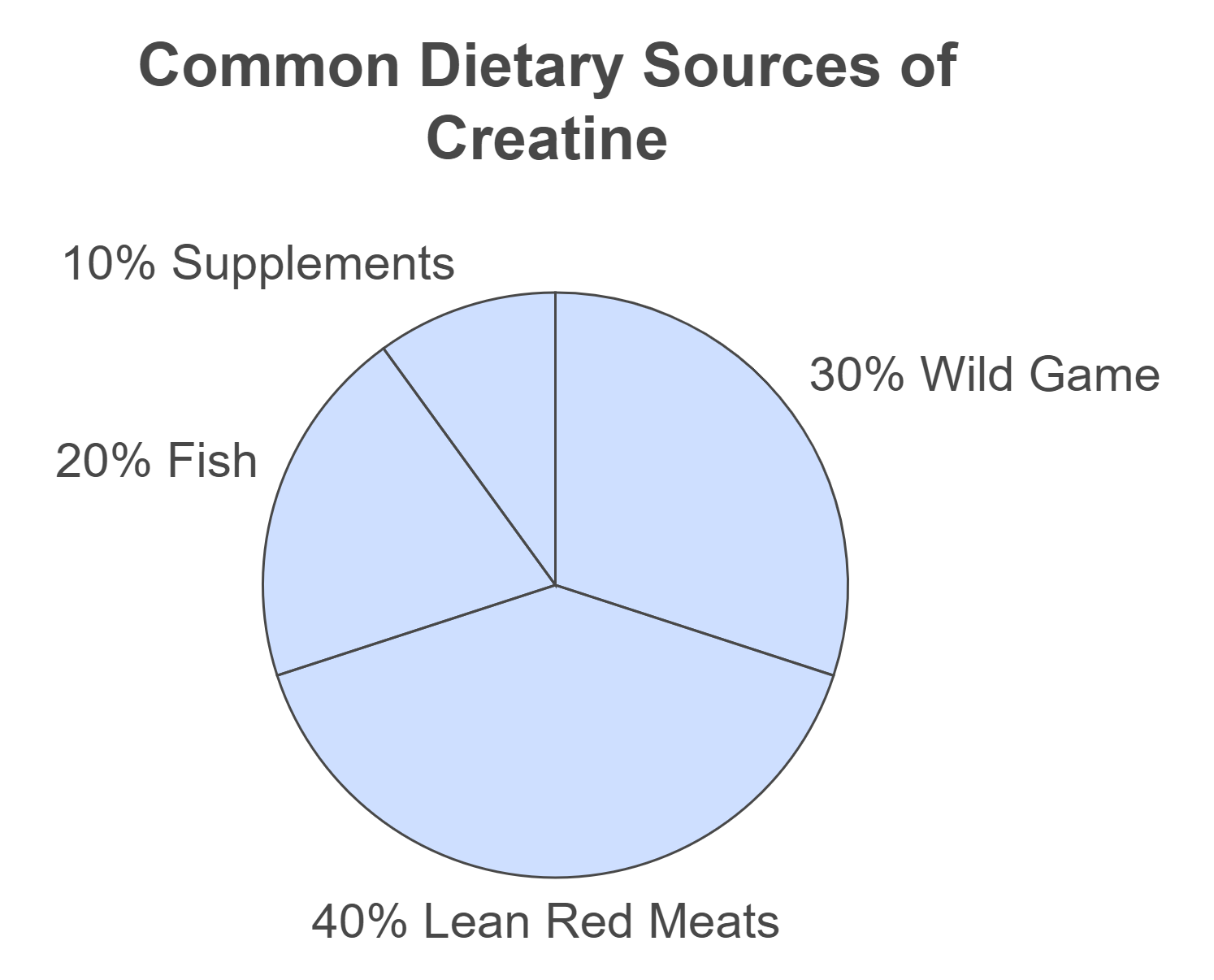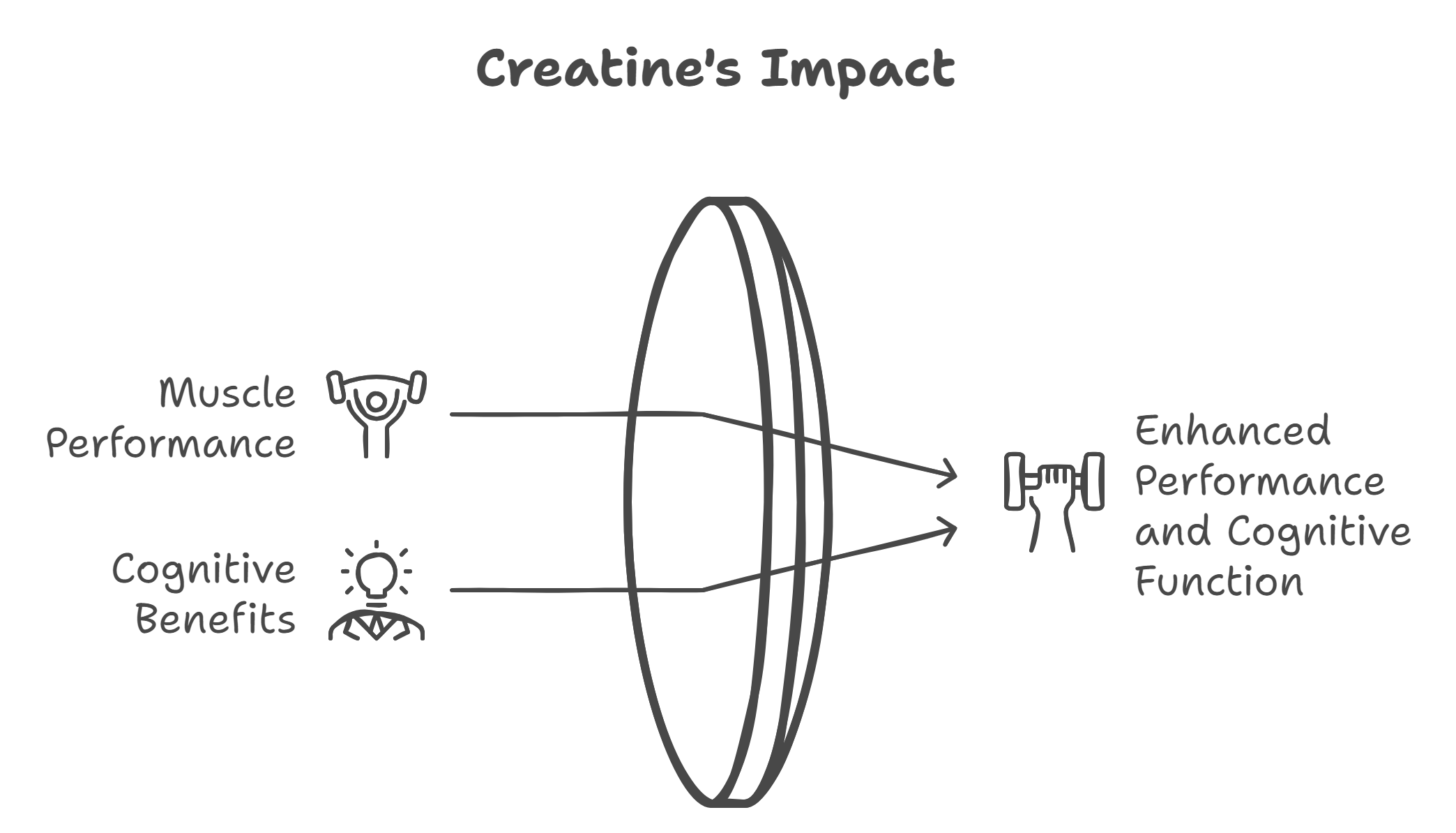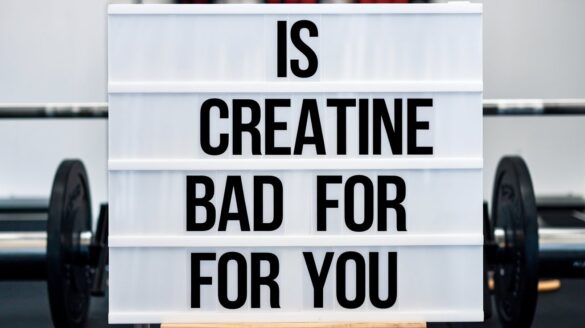Is Creatine Bad For You?
The use of creatine was generally considered to be safe for most people at the recommended dosage. Adverse effects on kidney or liver function had very little evidence from healthy adults, but long-term or overuse of creatine without medical direction may easily cause the acute hazards associated with kidney damage or dehydration and even more in some pre-existing conditions in individuals. It is recommended that a doctor be consulted before supplementing.
What is Creatine?
Role of Creatine in Body
Creatine is a natural metabolite that primarily resides in the muscles. It is a major participant in the generation of adenosine triphosphate, or ATP, which is the principal cellular currency of energy, when individuals are performing exercises requiring short periods of time but at high intensity, such as sprinting or weightlifting. This substance is derived from amino acids by the body. Through diet, it is possible to acquire creatine because red meat and fish are sources. Its general purpose is to provide energy to muscle contractions, leading to enhancement of athletic power and durability.
Common Dietary Sources of Creatine
Although the body produces creatine, it can also be derived from specific food sources. The most plentiful dietary sources are wild game, lean red meats and some fish, which include herring and salmon. Most commonly, creatine supplements come in the forms of powders, capsules, and drink mixes to supplement this amino acid for people who regularly exercise at a high intensity.

Common Myths Regarding Creatine Safety
Does Creatine Cause Kidney Damage?
Creatine’s impact on kidneys has been a long-held fear, primarily because it can affect your body’s creatinine levels- waste filtered by the kidneys. However, more than a few studies show that supplementing with creatine doesn’t harm kidney function in healthy humans. That being said, if you already suffer from a kidney condition, you should avoid creatine because it could be putting further strain on your kidneys(\Mount Sinai Health System)Mount Sinai Health System.
Creatine and Dehydration: Fact or Fiction?
A common myth exists that dehydration is caused by taking creatine. Creatine increases the inflow of water into muscles, so one would assume dehydration is inevitable when a routine involves high-intensity exercises. While some people do become mildly dehydrated on creatine, there is no science-proven sound link between creatine use and fluid loss. Be hydrated during supplement times to avoid potential risk(Mount Sinai Health System)(Mount Sinai Health System).
Muscle Cramps and Strains
Muscle cramp and muscle strain have been reported to occur due to creatine intake. Science, however, is in apprehension about this being a frequent side effect of the dosages recommended for consumption. Muscle cramping can be as a result of dehydration and electrolyte imbalance but is not a result of creatine intake (Mount Sinai Health System.
What are the advantages of supplementing with creatine?
Effects on muscle performance
Creatine is one of the most studied supplements in sports nutrition because it makes muscles stronger and harder, but does also show its power as a force for muscles. It, in plain words, provides a reservoir of ATP so there is adequate performance in those high-intensity, short-duration exercises. This means performance in weight lifting, sprinting, and interval training(Mount Sinai Health System)(Mount Sinai Health System).
Cognitive Benefits
Apart from its physical benefits, recent studies also showed neuroprotective effects from creatine. In neurodegenerative diseases like Parkinson’s disease, possible improvement of cognitive functions was also indicated, besides recovery of brain function and mental fatigue. Such results are promising; however, more studies are needed to establish whether such benefits are important(\Mount Sinai Health System\).

Who Should Not Take Creatine? Who Should Avoid Creatine?
Individuals with Pre-existing Kidney Diseases
Poor kidney function or kidney disease patients should not take creatine supplements because it passes through the kidneys, meaning that creatine supplementation may make renal stress worse, causing danger to the kidney. People suffering from hypertension or liver disease should not use creatine(Mount Sinai Health System).
Creatine has been proven to have clinical interaction with a plethora of drugs, non-steroidal anti-inflammatory drugs, diuretics among others that hinder the normal functioning of the kidneys. It is dangerous to combine these drugs with creatine as it may lead to dehydration or serious damage to the kidneys. Therefore, health care providers should be consulted before using creatine, especially when a patient is undertaking some form of prescription drugs whose mode of action involves the inhibition of the kidneys (Mount Sinai Health System) (Mount Sinai Health System).
How to Use Creatine in a Safe Manner
Recommended Dosage Levels
A general protocol of creatine intake for most athletes is the loading phase in a sum of 20 grams a day for 5 days to be consumed in a number of divided doses. After the loading phase, the maintenance phase of 3-5 grams daily is intended to be sustained for replenishment. The dose would be safe and sufficient in the improvement of performance but also low in risk factors for adverse effects(\Mount Sinai Health System\).
Timing and Best Practices
Creatine works best when it is ingested with carbohydrates. This will enhance its uptake into muscle cells. It can be taken before or after workouts, depending on what your goal is. The athletes also have to ensure they are hydrated while they use the supplement not to get dehydrated(Mount Sinai Health System).

Myths About Creatine
Creatine and Weight Gain
Creatine typically includes the “lean bulking” that some interpret as a side effect of the increase in weight caused by water retention in the muscles. Even though the addition of weight is not caused by fat, but rather by an elevated muscle water content, this in turn may assist in improving muscle function and recovery. Eventually, muscle mass may increase, thereby improving one’s strength(\Mount Sinai Health System\)(\Mount Sinai Health System\).
Creatine and Rhabdomyolysis
Although extremely infrequent, there exists a list of recorded cases of rhabdomyolysis, whereby the muscles start breaking down. Most of the time, it occurs at improper dosages and extended usage over and above the amount prescribed. Dosages at the level of standard repute can help prevent such risk(Mount Sinai Health System).
FAQs
Is creatine harmful to health in the long run?
For healthy people, creatine is considered safe so long as it is taken in dosage that has been prescribed. Long-term health risks seem to be minimal, however, if the supplementation is done correctly(\Mount Sinai Health System\).
Is creatine safe for teens and young athletes?
Creatine should not be given to teens and other young athletes unless under close supervision with a doctor since there is little research on the long-term effects it could have on younger populations(\Mount Sinai Health System\).
Does creatine have any impact on liver or heart health?
So far, evidence goes on to show that creatine is not harmful to the liver and heart in healthy individuals(\\Mount Sinai Health System).
Does creatine improve cognition?
Early data suggest benefits with respect to neurodegenerative diseases, but much more data is required to affirm these outcomes(\\Mount Sinai Health System).
How much water do I take with creatine?
A person is advised to stay hydrated since creatine tends to result in water retention within the muscles. Hydration will help prevent dehydration and its effects(\Mount Sinai Health System\)

